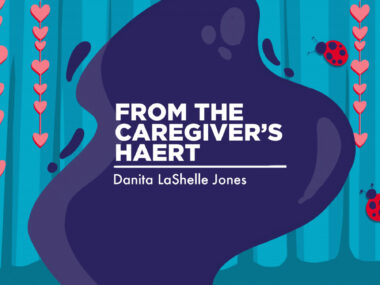The Other Side of the Story on Participation Awards
Written by |

The light from the dining room was the only one shining in the dark house. The hour was late, and being home from college for the summer, I figured I was the only one keeping late-night hours. But as I approached the door that led to the formal eating area, I was startled to find my mother alert and awake.
She sat at the head of the table perusing 19 neatly stacked piles of awards. It was a sight I had become used to over the years. At the performing arts magnet school where my parents taught, it was a year-end tradition to have a formal award ceremony for each grade. Every class would stand on the stage of the Broadway-worthy school theater while the principal would call out individual students’ names and read their awards. Then, the teacher would hand the tangible accomplishment to the waiting child, usually hugging them for all their hard work. These “celebrations” were legendary.
As I stood and scanned the piles representing every student in her class, my eyes settled on a single sheet of paper at the end of the table. When I peeked at the sheet, I realized it was a marker where a stack of awards should be. Instead, however, the only thing I saw was the name of her most “challenging” student staring back at me. I finally glanced at my mother, who had leaned back to stare at the ceiling.
“My goal is for every student to have at least four,” she finally said.
I glanced at the third grader’s empty pile and chuckled. I knew his history. He wasn’t an honor roll student, he wasn’t getting anything for perfect attendance, and he definitely wasn’t winning any citizenship awards.
“Consequences,” I shrugged. “That’s what happens when you don’t do your best.”
My mother shook her head. “It’s not that simple,” she said. “Some people do the best they can with what they have. Sometimes, you award their effort.”
And that’s what she did. That young man stood on stage with his classmates and received awards that championed his existence and improvement.
Me? I scoffed at my mother’s “participation award” distribution. At the time, I subscribed to what most people believe: High achievers get rewarded, and only winners get “sprinkles,” or any other cliches that dismiss the idea of handing out certificates for trying.
Yet almost 20 years later, I sat in the bleachers of my daughter’s award ceremony (we lovingly refer to her as Ladybug), silently praying that she would walk away with something.
When Ladybug was diagnosed with hereditary angioedema last year, we were grateful to finally have a name for what we couldn’t explain to previous schools. But it didn’t make current conversations any more uncomplicated.
Yes, absences were excused, but it created stacks of additional work. Yes, Ladybug was intelligent, but a myriad of sick days created a shaky academic foundation. Sure, she could make up the work, but the stress of completing it before the end of the grading term often led to more flares.
As we approached the end of the school year, I hid that I was genuinely worried about how Ladybug would finish sixth grade. And while her new treatments proved to be working, this school year wasn’t free from the devastation that HAE can wreak on a child’s academics.
So I sat in the award ceremony, eyes closed, prepared to explain to Ladybug that she was still a warrior even if she didn’t get anything. I knew she wouldn’t be receiving awards for honor roll or perfect attendance, but my mind drifted.
My imagination wandered to a moment where she’d receive an award for her perseverance in returning to school after a debilitating flare, or maybe one for her bravery over needles, or possibly one for appearing at a U.S. Hereditary Angioedema Association roundtable talking about what her illness means to her.
Instead, I opened my eyes in time to hear Ladybug receive an award for being a fantastic helper to the science teacher. She beamed as she received it and hugged me after the ceremony. Someone had acknowledged her efforts, and that made her happy.
My mother was right.
Should we reward high achievers? Yes. And we should also consider giving participation awards. Because sometimes, you never know what a person has to go through just to complete the task ahead of them.
Seventh grade, here we come.
Note: Angioedema News is strictly a news and information website about the disease. It does not provide medical advice, diagnosis, or treatment. This content is not intended to be a substitute for professional medical advice, diagnosis, or treatment. Always seek the advice of your physician or other qualified health provider with any questions you may have regarding a medical condition. Never disregard professional medical advice or delay in seeking it because of something you have read on this website. The opinions expressed in this column are not those of Angioedema News or its parent company, Bionews, and are intended to spark discussion about issues pertaining to angioedema.







Leave a comment
Fill in the required fields to post. Your email address will not be published.